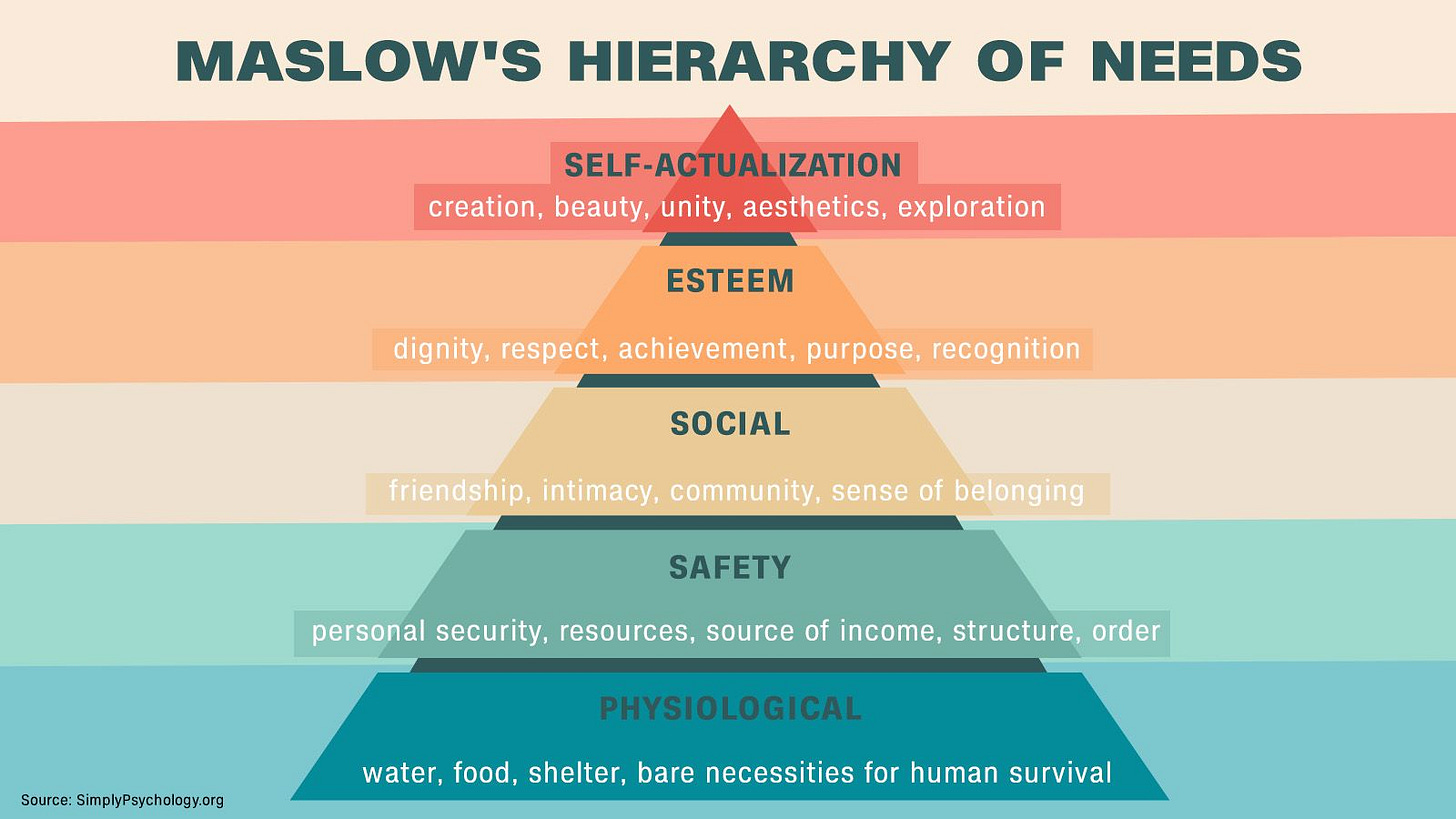Depending on how online you are, you might have seen or heard about Jeff Bezos’s wedding this past weekend. I, for one, had no idea he was getting married until I saw a couple TikTok videos about it. I actually didn’t even realize he was in a relationship. All I knew was that he was divorced (after allegations of cheating on his part) from his wife of many years, MacKenzie Scott, the woman who helped him build Amazon while also raising their four children and supporting the family financially through her full-time job.
The wedding was evidently taking place in Venice, Italy, which I learned from a video of a gigantic banner spread across St. Mark’s Square that read: “If you can rent Venice for your wedding, you can pay more tax.” I then saw additional videos of different advocacy groups launching protest installations across the city, including several floating imitations of Jeff, complete with fists of cash, in the canals. The protests were driven out of frustration with the shutdown of half the city at the expense of its residents and aimed to deter or even cancel the wedding.

I then started to see videos about the guest list, which included a slew of household names like Bill Gates, Oprah Winfrey, the Kardashian family, and Mick Jagger, among many others1. If I hadn’t known it was a wedding, I would have thought it was just another celebrity award ceremony or gala of some kind.
I’m aware that my algorithm is showing me what I want to see based on how I’ve interacted with similar content. I’m aware that it’s one-sided – that is, the side critiquing excessive wealth and celebrity. It’s not showing me that the couple is reportedly donating three million euros to Venice or how the event is estimated to bring over 950 million euros to the country. But even if it did, even if I saw news of the economic benefits before the protests, I don’t think it would have impacted my opinion. My opinion being: money is corruptive currency.
Despite being a construct, we’ve all somehow agreed money is real. We’ve assigned value to it and organized our society around it. We’ve even gone so far as to equate professional earnings with personal worth and proceeded to embed that belief into everything we do. According to our culture, the less money you have, the less of a person you seem to be. I, however, would argue the opposite is true. To me, it begs the question of whether someone with incredible wealth still exhibits much humanity at all.
It’s a hell of a thesis, I know, and it may sound extreme to some. Money, on some level, is a necessity. It can’t buy happiness, but it does impact wellbeing. In looking at Maslow’s hierarchy of needs, it’s listed right above physiological needs – things like food, water, and shelter – that constitute baseline survival. Money sits within the next tier, contributing to our overall sense of safety.

My question, however, is this: What happens when there’s an excess? In theory, at least according to Maslow’s hierarchy, the more money we have, the safer we will feel. But if that’s true, then why do we see such blatant accumulations of wealth? Surely multi-millionaire and billionaire status would elicit a solid sense of security. Surely it wouldn’t keep a person in a scarcity mindset, constantly (greedily) grasping for more. But that’s not what we’re seeing, is it? No. Instead we’re seeing protestors taking to the streets, squares, and waterways of Venice to oppose an oligarch renting their city just because he can.
Maybe it’s just a manifestation of evolutionary theory, maybe it’s a human instinct to gather as many resources as possible as a method of survival. However, that doesn’t necessarily translate to the modern times we live in. It’s one thing to collect as many sticks and rocks as possible to ward off wild animals. It’s another to hoard as much money as possible just for the power and hell of it.
When I think about what sets us apart from animals, I think of more than just opposable thumbs. Humans notably have complex language and self-awareness, but we also have moral reasoning and social norms. However, studies show that money lowers empathy and clouds moral judgement. According to UC Berkeley, “even thinking about money can lead to immoral behavior.” In an experiment with Monopoly money, researchers observed that a player who had been given more than the other player “expressed initial discomfort, but then went on to act aggressively, taking up more space and moving his pieces more loudly, and even taunting the player with less money.”
Money, it seems, changes the brain. In fact, the pursuit of money is actually considered a process addiction, or a “behavioral addiction,” similar to that of gambling, phone, or even sex or porn addictions. As opposed to alcoholism or drug addiction wherein a person is addicted to the actual substance, a process addiction stems from the positive feeling associated with obtaining or doing the thing. The action then becomes the “high,” and as the person engages in the activity, they essentially manipulate their own brain chemistry.
As if addiction isn’t worrisome enough, it’s alarming how similar the effects of excessive wealth are with antisocial personality disorder, also known non-clinically as sociopathy. It may sound like a callous stretch, but on paper, they appear to have a number of overlapping qualities, including a lack of empathy, a use of manipulation of others for personal gain, and a sense of being above the law. It’d be easy to say it’s only prevalent in men, seeing as some of the richest people in the world with the most egregious track records are men. (I don’t even need to name the names, you already know who I’m talking about.) Women, however, are just as susceptible. The Kardashians are a perfect example. Kim Kardashian, for one, who famously framed Taylor Swift by manipulating an illicitly recorded phone conversation between the singer and Kanye West.
To me, it makes total sense why Kim and her sisters were on the guest list for Jeff’s big day: they, like him, love money. They also love showing it off. It’s a stark contrast to MacKenzie Scott, a billionaire in her own right after receiving just 4% of Amazon in her divorce from Jeff, who proceeded to sign the Giving Pledge shortly after the divorce was announced. Rather than renting a city in an ostentatious three-day display, she has pledged to join other philanthropists like Melinda Gates and Warren Buffett to give “at least half of her wealth over the course of her lifetime,” according to Forbes.
Though making large sums of money can be impressive, what strikes me as more impressive is what a person chooses to do with it. More often than not, how they spend it directly correlates with what they care about. For some, it’s themselves. For others, it’s other people.
You tell me which one feels more human.
I also have to wonder if more money means you have fewer friends. The wedding guest list was reportedly only around 200 people, and I, for one, have a tough time believing Sydney Sweeney and Jeff Bezos are longtime besties lol.






I loved this essay SO much and have so many thoughts about it. I think it was in Braiding Sweetgrass that Robin Wall Kimmerer said there are indigenous cultures where how rich you are is defined by how much you give to others, which really resonates with me. Maybe it's because I grew up in a small rural town but I'm just really not that impressed with ostentatious wealth. One time when I lived in New York, a guy got mad at a bar when my friends and I weren't chatting with him and yelled at us that he made 300k a year...to which we were like, well seems like it's made you very happy...
This timing is also so funny because I'm currently reading Your Money or Your Life, and a big part of the first chapter of the book talks about how money, and more specifically materialism, has warped our society. They've found in studies that no matter how much money someone has, they *always* say they'd be happier or more satisfied with more, even if they have more than the person sitting next to them. Really makes you think
Also the footnote really made me lol. I think it was in Gossip Time that I saw this but apparently a lot of the celebs who attended know Lauren Sanchez more because her ex was in the entertainment industry. And Sydney Sweeney being there was probably more related to her having acted in Amazon/MGM films. So so funny
As a child of immigrant parents who left their respective countries and had to fend for themselves without a support system or Financial means, and spent their entire lives scraping by, all while raising four children, money or the lack of, played a pivotal role in all our lives.
I have no regrets about how I was raised. I had everything I needed: love, a roof over my head, food on the table, good health. The rest is all gravy. I’ve kept this mentality.
I think people who have inherited wealth are coming into life with a huge deficit because I honestly don’t know how they can relate to those who are not as fortunate as they are.
People who came from nothing and worked their way to the top may be “more human” as at least they experienced hard times.